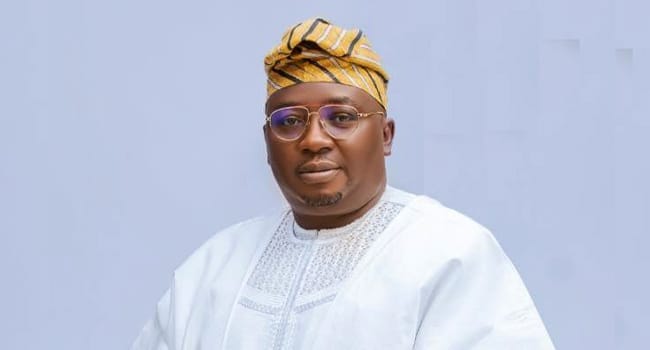Power: FG budgets N1tn for special interventions, projects

Adebayo Adelabu
FG budgets N1tn for special interventions, projects.
FG budgets N1tn for special interventions, projects.
The Ministry of Power plans to allocate a significant portion of its N1.2tn 2025 budget towards financing a range of multilateral and bilateral loan projects to enhance electricity generation and distribution nationwide.
It allocated N810bn to fulfil its funding obligations of the $1.74bn World Bank’s Power sector recovery and $2.62m Distribution Sector Recovery Programme loans to improve the technical and financial performance of electricity distribution companies. The DISREP programme seeks to install 3.2 million meters.
These initiatives will focus on improving infrastructure, increasing efficiency, and expanding access to reliable power for communities across the country, ensuring a more sustainable and robust energy system for the future.
It also proposed a sum of N269.74bn for special intervention power projects, N47.35bn for the construction of transformers and substations, and N36.82bn as counterpart funding for earmarked transmission lines and substations projects.
These details were disclosed in the line items of the power ministry’s 2025 appropriation bill analysed by our correspondent on Wednesday.
The report revealed that N585bn will be spent as additional financing for the power sector recovery operation while the DISREP will gulp N225bn.
FG budgets N1tn for special interventions, projects.
Nigeria has been battling epileptic power supply, affecting the productivity of small businesses and manufacturers. This challenge is exacerbated by the frequent collapse of the national grid with a total of 12 breakdowns recorded in 2024.
To resolve this recurring issue, the power minister, Adelabu Adebayo, revealed that Nigeria requires at least $10bn over the next ten years to achieve a 24-hour power supply across the country. However several underlying factors have hindered the presidential goal to generate 6,000 megawatts this year.
Further analysis showed that the government will spend N36.26bn as counterpart funding for the Zungeru transmission line and earmarked lines and substations, and N250m for JICA and GIZ donor-assisted projects.
N10m is for the construction of a 50-megawatt grid-connected scale solar project in Gwiwa, Jigawa state, and N160m as counterpart expenses for bilateral projects under the ISA, ECREEE, and KOICA.
Also, it budgeted N85m as grant aid counterpart funding for donor-assisted projects and N50m for the Hydropower development master plan and strategies for environmental and social assessment.
Under the special intervention projects, the government proposed a sum of N25bn for the completion of uncompleted priority projects under the Transmission Company of Nigeria, N36bn for the distribution intervention for transformers, cabling, and polling replacement across the six geo-political zones, and N150bn for the funding of the Presidential Power initiative.
Similarly, N24bn was earmarked for the provision of mini-grids in federal and state polytechnics nationwide, an emergency intervention for infrastructure distribution will gulp N10bn, while the provision of solar street lights at major highways nationwide will get a funding of N24.7bn.
Our correspondent further observed that other items listed include N8.1bn for the advocacy, public enlightenment, and orientation on power assets vandalization, N150m for the pre-retirement skill acquisition in the power sector, and N1.41bn for the provision of basic amenities for project affected communities at 38 resettlement sites.
